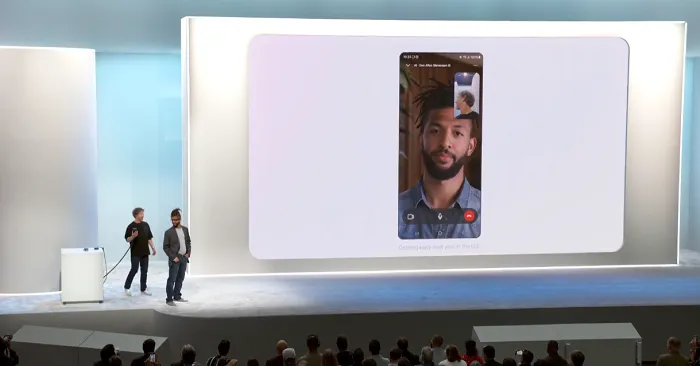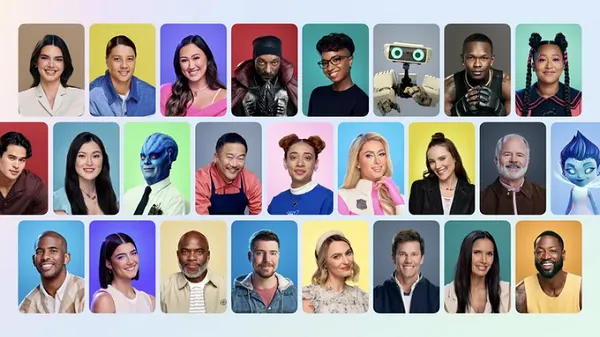Meta Ramps Up Recruitment Drive to Fuel Its AI Expansion Strategy
 Adshine.pro06/28/202522 views
Adshine.pro06/28/202522 viewsAs Meta continues to funnel AI tools and features into its suite of apps, it’s clear that the company isn’t even close to slowing down its push into artificial intelligence. In fact, Meta plans to invest a staggering $65 billion into AI projects this year alone, aiming to secure its position at the forefront of the ongoing AI arms race.
And according to recent reports, Meta’s next frontier may be conversational AI, with a custom voice component designed to create more relatable interactions.
Bloomberg reports that Meta is in advanced negotiations to acquire PlayAI, a small California-based startup specializing in replicating voices using artificial intelligence. While the deal has yet to be finalized, sources indicate that Meta would acquire both PlayAI’s technology and some of its staff as part of the agreement.
If completed, the acquisition would fit perfectly into Meta’s broader strategy of snapping up AI talent wherever it can find it. In recent weeks, Meta has embarked on an aggressive AI hiring spree, reportedly offering enormous compensation packages to lure top industry researchers and engineers. Among those brought onboard is Scale CEO Alexandr Wang, who now leads Meta’s new "superintelligence" initiative, along with several former OpenAI researchers.
The goal of this "superintelligence" project is ambitious: to develop AI systems capable of reasoning beyond human cognitive capacity, theoretically creating models that not only replicate human-like thinking but surpass it.
Whether that vision is even technically achievable remains a matter of debate. But what’s clear is that Meta intends to push the boundaries of logic-based systems and see just how far current AI frameworks can be extended.
The push into conversational AI seems like a logical piece of that puzzle. Meta has already spent years developing its AI bot platform, which allows creators to build AI-based avatars of themselves that fans can interact with at any time. Adding advanced conversational voice tools would likely make those interactions feel more authentic and personalized, which aligns with Meta’s broader goal of weaving AI into every layer of its user experience.
Ultimately, Meta’s bet on AI isn’t merely about keeping up with the competition. With tens of billions invested and some of the sharpest minds in the field under its roof, Meta is signaling its intent to lead the AI race—and perhaps redefine what intelligent systems are capable of in the years to come.
Those bots were hyped as the next evolution of engagement on Messenger, offering a way for fans to interact with virtual representations of their favorite celebrities. But the response was tepid at best. Users quickly found that while the novelty of chatting with a pseudo-celebrity was intriguing, the interactions themselves often felt hollow or contrived. Engagement tailed off within months, highlighting the challenge Meta faces in making conversational AI truly sticky with its audience.
But the technology is improving. With advances in generative AI, and Meta’s increasing investment into making its systems feel more human, the company clearly sees potential in this area. Adding custom voices, especially those that mirror the unique cadence and warmth of real human speech, could be one way to overcome that hurdle and keep people coming back for more.
The bigger picture is Meta’s race to build the most powerful, intuitive AI platform in the world. It’s throwing billions at the problem, recruiting top talent, acquiring smaller players, and experimenting across its entire suite of products. Whether it’s wearables, messaging apps, or the looming promise of the metaverse, Meta wants AI to be the connective tissue that ties its ecosystem together and makes it indispensable to billions of users.
Of course, the ethical and societal questions remain. As Meta barrels forward, critics warn about the risks of deepening dependency on AI-driven experiences, and the potential erosion of authentic human connection. For now, though, Mark Zuckerberg seems undeterred. He’s betting big that a future built on AI-driven conversations, personalized assistants, and synthetic voices will be the next great leap — for Meta, and perhaps for society at large.
Despite Meta’s bold push into celebrity-inspired AI bots last year, the project landed with a thud. Users simply didn’t care, and engagement with the feature was so low that Meta quietly shuttered the experiment in under a year. That experience underlined a simple truth: AI clones of famous figures aren’t necessarily the draw Meta hopes they might be.
Still, that hasn’t deterred the company. Last summer, reports surfaced indicating Meta was dangling multimillion-dollar deals to top-tier celebrities, attempting to lure them into lending their voices to AI ventures. And now, Meta appears to be doubling down on the idea, moving to acquire a startup specializing in voice replication technology.
The end goal? Perhaps a more personable, approachable stable of AI bots that people can interact with on-demand, via Meta’s glasses or other wearable devices. Such bots could theoretically deepen engagement and expand Meta’s ecosystem in ways that transcend screens.
Or, alternatively, this latest move might simply be another maneuver in Meta’s broader race toward AI supremacy. The company has already poured billions into its so-called "superintelligence" project, recruiting top minds and snapping up promising startups to build the foundation for its next generation of AI tools.
Regardless of the immediate payoff, one thing is clear: Meta’s AI push is far from over. And as the company races to dominate the next frontier of artificial intelligence, expect even more ambitious experiments — from voice clones to sophisticated conversational companions — to surface in the months ahead.
📢 If you're interested in Facebook Ads Account, don't hesitate to connect with us!
🔹 https://linktr.ee/Adshinepro
💬 We're always ready to assist you!
